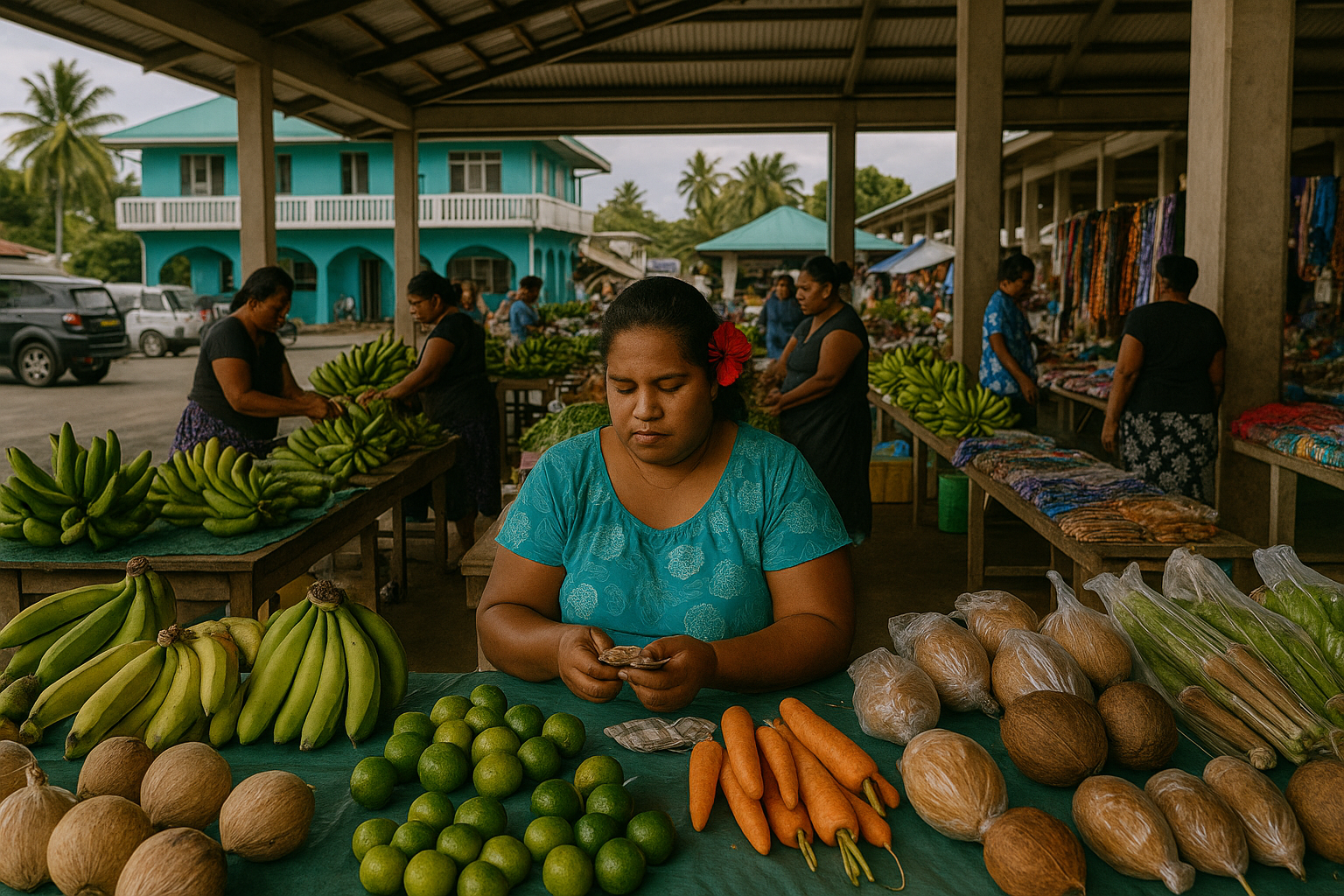From Micro to Markets: Advancing Female Entrepreneurship in Pacific Nations
The report “Empowering Female Entrepreneurship in the Pacific” by the World Bank and regional partners reveals that women dominate micro and informal businesses but remain excluded from finance, property rights, and larger markets due to cultural and structural barriers. It calls for legal reforms, innovative financial tools, and stronger policy coordination to unlock women’s entrepreneurial potential as a driver of inclusive growth in Pacific Island Countries.

The report “Empowering Female Entrepreneurship in the Pacific”, prepared under the leadership of the World Bank Group in partnership with regional research institutes, women’s business associations, and development partners, presents an in-depth exploration of the challenges and opportunities facing women entrepreneurs across Pacific Island Countries. It makes a compelling case that female-owned businesses are central to inclusive and sustainable growth in the region, yet remain deeply constrained by financial exclusion, cultural barriers, and systemic inequities. Despite progress in policy frameworks that champion gender equality, the reality is that women are still clustered in micro and informal businesses while struggling to enter larger, high-value, or export-oriented markets.
The Double Disadvantage of Gender and Geography
The Pacific is among the most geographically scattered and culturally diverse regions in the world, and this backdrop magnifies the disadvantages women face. Traditional norms restrict women largely to household roles, while systemic gaps in education, inheritance, and property rights limit their economic agency. Female entrepreneurs dominate micro-sectors such as subsistence agriculture, fisheries, handicrafts, and small trading ventures, but these activities rarely translate into profitable or scalable businesses. Inheritance and land tenure practices, which often remain patriarchal, deny women collateral for credit and constrain their ability to expand. On top of these economic obstacles, women shoulder a heavy burden of unpaid care, leaving little time or flexibility for business growth. The report highlights that gender-based violence remains another formidable barrier, eroding women’s safety, mobility, and confidence to engage in larger markets. A data table included in the study underlines this inequality, showing women consistently underrepresented in wage employment and formal business ownership across the Pacific.
Finance and Markets: The Missing Links
Access to finance surfaces as one of the most persistent challenges. Many women lack bank accounts, credit history, or even identification documents, basic prerequisites for financial participation. A striking infographic in the report captures how collateral requirements, limited financial literacy, and gender-biased lending practices lock women out of formal banking channels. Instead, they turn to microfinance and informal savings groups, which may meet immediate needs but fall short of providing the capital necessary for real growth. Market access is equally problematic. Women’s businesses are confined to oversaturated local markets with limited reach beyond their communities. Weak infrastructure, poor logistics, and the high costs of moving goods across scattered islands only deepen this divide. In global value chains, women remain on the periphery, largely restricted to low-value artisanal and processing work. Yet success stories, such as Fijian women leading eco-tourism ventures or Papua New Guinea cooperatives entering export agriculture, show how training, digital tools, and targeted support can open new pathways.
Policies in Motion, but Gaps Persist
The report reviews regional and national policy efforts, noting encouraging commitments such as the Pacific Leaders’ Gender Equality Declaration and donor-funded projects on financial literacy and women’s cooperatives. Still, it delivers a sharp critique: interventions are too often fragmented, poorly coordinated, and short of systematic monitoring. A diagram included in the study vividly maps the ecosystem of ministries, development banks, NGOs, and women’s networks, showing overlapping responsibilities and duplication rather than synergy. The lack of integration between gender equality goals and mainstream private-sector development strategies is identified as a critical gap. Without structural reforms and better coordination, the report warns, existing initiatives risk producing marginal rather than transformative outcomes.
A Roadmap Toward Inclusive Growth
The final chapters present a detailed roadmap for unlocking women’s economic potential. Legal reforms to guarantee equal property and inheritance rights are at the top of the agenda. Financial innovations such as collateral-free loans, credit guarantees, and digital banking tailored to women’s realities are seen as crucial. Equally important is building capacity through digital literacy, leadership training, and export-readiness programs. Expanding access to regional and international markets through branding, trade facilitation, and participation in value chains is emphasized as the bridge to scaling women-owned enterprises. The report also highlights the importance of building supportive ecosystems, women’s networks, mentoring initiatives, and gender-responsive public policies that together create an enabling environment.
The study insists that empowering female entrepreneurship in the Pacific is not simply a matter of fairness but of economic necessity. Women entrepreneurs, when given the chance, generate jobs, diversify economies, and reinvest disproportionately in their families and communities. Their contributions can help Pacific Island Countries reduce dependency on remittances and aid, creating more resilient and inclusive societies. The report is therefore both a warning and a call to action: unless systemic barriers are dismantled, the region will continue to miss out on the vast potential of half its population. But with coordinated reforms, targeted investments, and strong institutional support, Pacific women entrepreneurs could become the backbone of a new era of sustainable and inclusive growth.
- FIRST PUBLISHED IN:
- Devdiscourse
ALSO READ
World Bank Approves $137M TRALARD II Project to Boost Zambia’s Climate Resilience
Why Women Entrepreneurs in Peru Lag in Informal Firms but Match Men at the Top
World Bank Group to Deploy $4B for Argentina’s Reform and Growth Agenda
AfDB, World Bank Train Experts on PEFA to Boost Public Finance in East Africa
World Bank Warns Poverty Rising Again in Pakistan, Calls for Urgent Reforms










